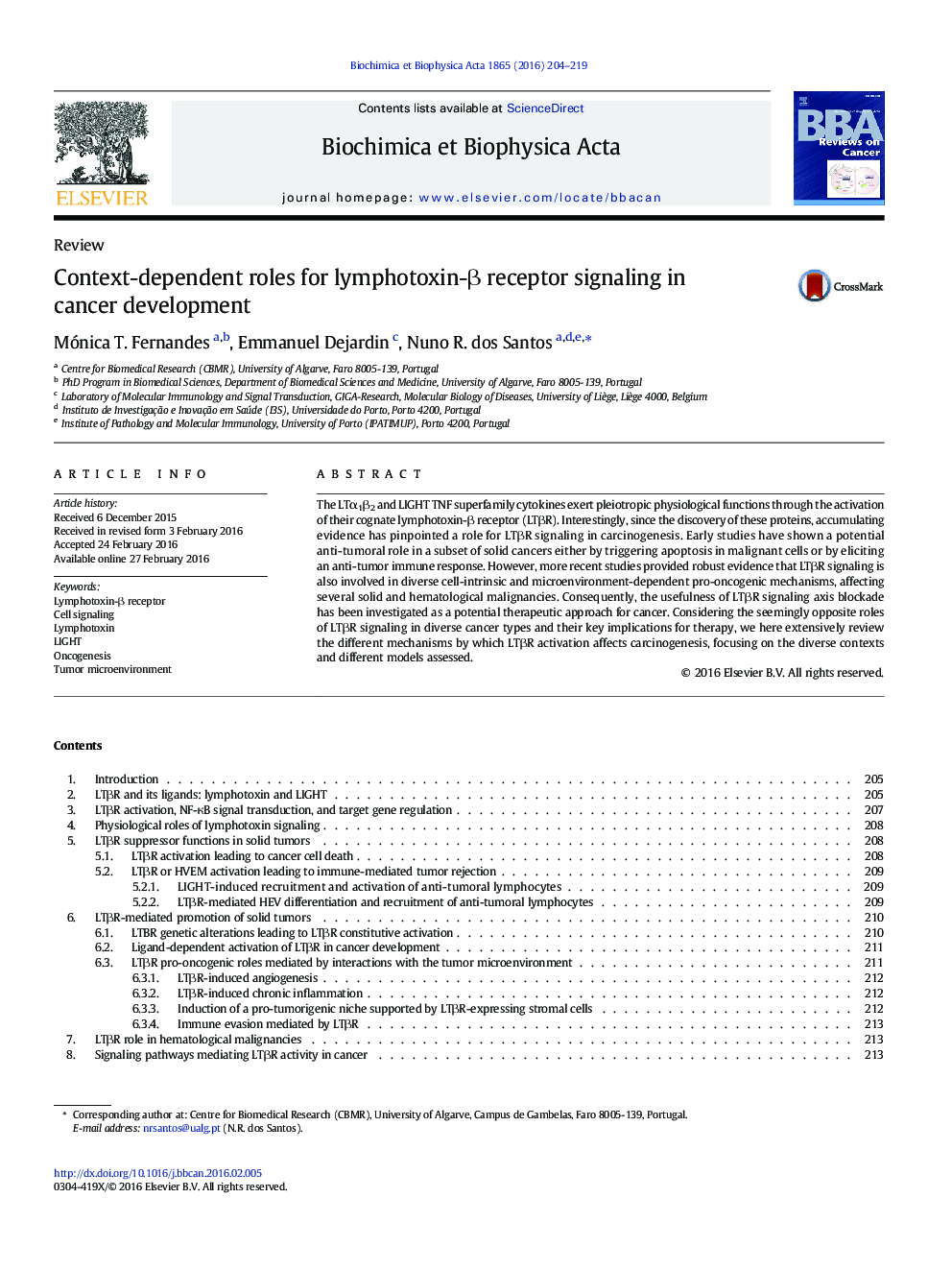| Article ID | Journal | Published Year | Pages | File Type |
|---|---|---|---|---|
| 10895538 | Biochimica et Biophysica Acta (BBA) - Reviews on Cancer | 2016 | 16 Pages |
Abstract
The LTα1β2 and LIGHT TNF superfamily cytokines exert pleiotropic physiological functions through the activation of their cognate lymphotoxin-β receptor (LTβR). Interestingly, since the discovery of these proteins, accumulating evidence has pinpointed a role for LTβR signaling in carcinogenesis. Early studies have shown a potential anti-tumoral role in a subset of solid cancers either by triggering apoptosis in malignant cells or by eliciting an anti-tumor immune response. However, more recent studies provided robust evidence that LTβR signaling is also involved in diverse cell-intrinsic and microenvironment-dependent pro-oncogenic mechanisms, affecting several solid and hematological malignancies. Consequently, the usefulness of LTβR signaling axis blockade has been investigated as a potential therapeutic approach for cancer. Considering the seemingly opposite roles of LTβR signaling in diverse cancer types and their key implications for therapy, we here extensively review the different mechanisms by which LTβR activation affects carcinogenesis, focusing on the diverse contexts and different models assessed.
Related Topics
Life Sciences
Biochemistry, Genetics and Molecular Biology
Cancer Research
Authors
Mónica T. Fernandes, Emmanuel Dejardin, Nuno R. dos Santos,
